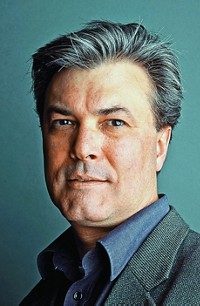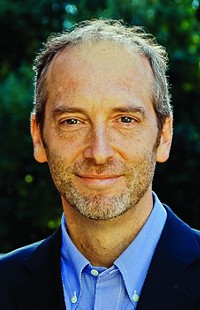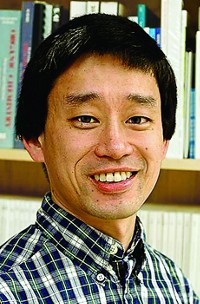Advertisement
Grab your lab coat. Let's get started
Welcome!
Welcome!
Create an account below to get 6 C&EN articles per month, receive newsletters and more - all free.
It seems this is your first time logging in online. Please enter the following information to continue.
As an ACS member you automatically get access to this site. All we need is few more details to create your reading experience.
Not you? Sign in with a different account.
Not you? Sign in with a different account.
ERROR 1
ERROR 1
ERROR 2
ERROR 2
ERROR 2
ERROR 2
ERROR 2
Password and Confirm password must match.
If you have an ACS member number, please enter it here so we can link this account to your membership. (optional)
ERROR 2
ACS values your privacy. By submitting your information, you are gaining access to C&EN and subscribing to our weekly newsletter. We use the information you provide to make your reading experience better, and we will never sell your data to third party members.
Synthesis
André B. Charette
February 12, 2007
| A version of this story appeared in
Volume 85, Issue 7
André B. Charette has distinguished himself in the study of asymmetric synthesis, with a focus on research that is yielding effective new methodologies and deeper understanding of underlying structures and mechanisms. The extensions of this work are numerous, and the "Charette asymmetric cyclopropanation" of allylic alcohols has become widely used, one colleague notes.
Charette's work focuses on the development of new methods for the stereoselective synthesis of organic compounds. He has particular interest in the design of new chiral auxiliaries and in the development of reagents and catalysts for a variety of organic reactions, including cyclopropanation, carbonyl/imine nucleophic addition, cross-coupling reactions involving cyclopropanes, and heterocyclic synthesis. Besides his work developing new methodologies, he has investigated new reagents and the mechanisms of their reactions. He then applies these new discoveries to the synthesis of biologically relevant compounds.
For the cyclopropanation reaction, Charette has found useful methods and new reagents leading to cyclopropanes with better chemoselectivities, higher enantiocontrol, and milder reaction conditions. In addition, he has clearly characterized the classic zinc carbenoid reagents. Similarly, he has studied the preparation and reactivity of gem-dizinc carbenoids, novel reagents used in the synthesis of polysubstituted cyclopropanes. He has also developed new coupling conditions for the cross-coupling of cyclopropylzinc and new methods—based on nucleophilic addition of diorganozinc reagents to N-phosphinolyimines—for the synthesis of chiral amines.
Charette has also made important contributions to the arena of polyfunctional heterocycles, especially the synthetically important piperidines. This work relies on the novel formation of pyridinium imidates from simple amides and triflic anhydride, followed by the nucleophilic addition of Grignard reagents. Furthermore, he has developed a partial solution to the long-standing problem of the catalytic enantioselective hydrogenation of substituted pyridines by employing novel pyridinium ylides that lead to enantioenriched piperidine derivatives using an iridium chiral catalyst.
Much of his work has been done at the University of Montreal, where he has been based since 1992. Charette received his B.S. degree in 1983 from that university and then moved to the University of Rochester, where he earned an M.Sc. in 1985 and a Ph.D. in 1987.
He took a postdoc at Harvard University in the research group of David A. Evans, under the sponsorship of the National Sciences & Engineering Research Council of Canada (NSERC), and then began his academic career as an NSERC University Research Fellow at the Université Laval, Québec City, in 1989.
In 1992, Charette moved to Montreal, where he was promoted to the rank of associate professor in 1994 and full professor in 1998.
In 2002, he received the Royal Society of New Zealand's Rutherford Medal and was named one of Canada's top 20 researchers aged 40 and under. He has received many Canadian academic honors, including a Bio-Méga/Boehringer Ingelheim Research Young Investigator Award.
Internationally, Charette has received a variety of awards, including the Eli Lilly Grantee Award and an Alfred P. Sloan Research Fellowship. He currently holds the NSERC/Merck Frosst/Boehringer Ingelheim Research Chair on Stereoselective Drug Synthesis and a Canada Research Chair in Stereoselective Synthesis of Bioactive Molecules.
For the past five years, Charette has been an editor of Organic Reactions, and since 1997, he has been an editor of the Canadian Journal of Chemistry for French manuscripts on organic chemistry.






Join the conversation
Contact the reporter
Submit a Letter to the Editor for publication
Engage with us on Twitter